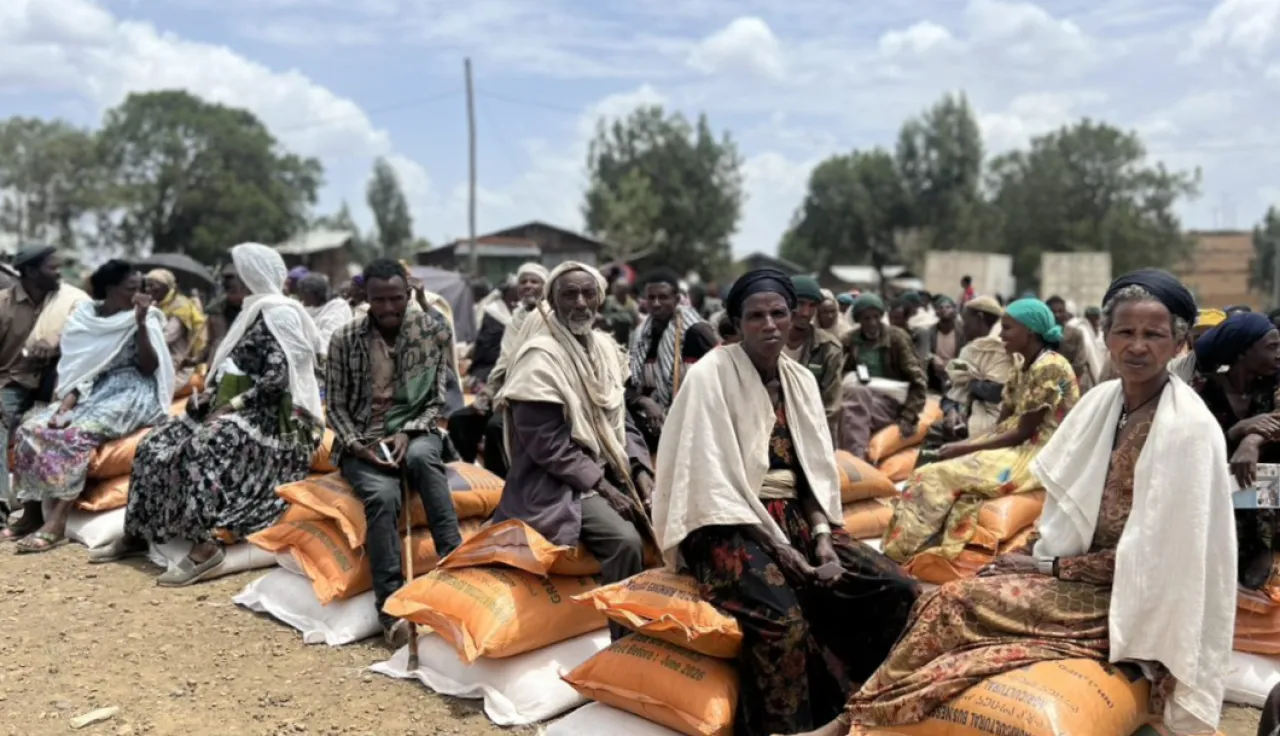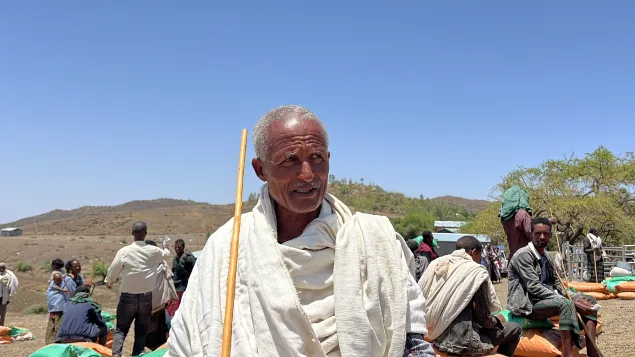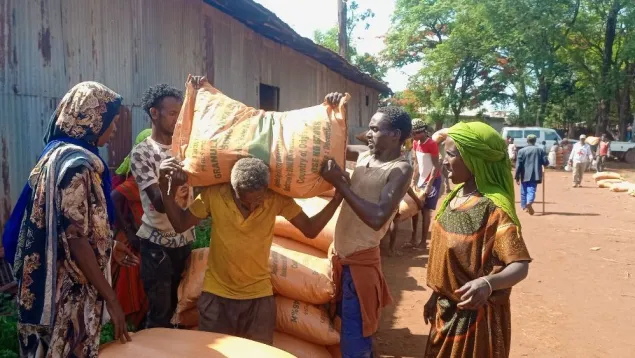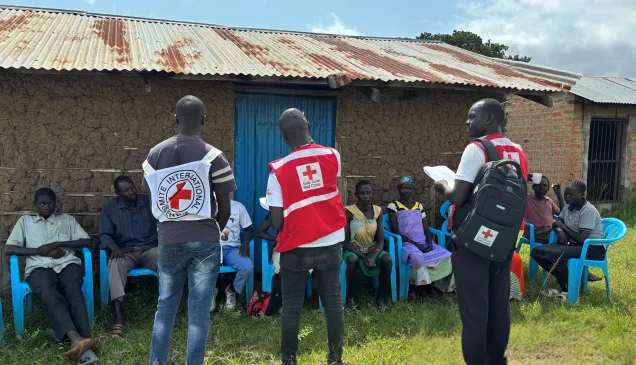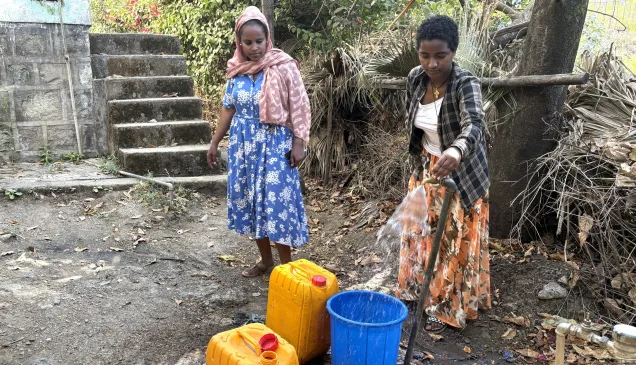Overall, this humanitarian assistance should allow these communities to cultivate about 6,500 hectares of land, for an anticipated production of 17,000 metric tons of maize, haricots, beans, wheat, sorghum and teff, a small grain that is a staple crop in Ethiopia.
Birhane Misganaw, a 30-year-old woman lives with her seven family members in Ayna Bugna, a remote part of Amhara’s North Wollo zone that has been isolated for a long time. “We used to be able to buy seeds and fertilizers to farm our land. But in the past three years, because of the conflicts and other problems, we couldn’t get any. We don’t have enough food and poverty is coming to us”, she said.
In Tigray, explosive remnants of war are still scattered in agricultural land, making it dangerous to farm. This situation is further jeopardizing rural families’ food security. In response, in four areas of the Northwestern zone, the ICRC and ERCS conducted a series of risk awareness sessions to coincide with the distribution of seeds and fertilizers. 855 farmers were reached, thereby helping them to cultivate safely.
“Our teams have a good access to remote conflict-affected communities such as those who benefited from these vital distributions,” Ms Casabianca-Aeschlimann said. “Continued dialogue is necessary with all arms carriers concerned. Their understanding of our strictly neutral and impartial approach is key to ensuring safe access to those who are most vulnerable.”
About the ICRC
The International Committee of the Red Cross (ICRC) is a neutral, impartial and independent organization with an exclusively humanitarian mandate that stems from the Geneva Conventions of 1949. It helps people around the world affected by armed conflict and other violence, doing everything it can to protect their lives and dignity and to relieve their suffering, often alongside its Red Cross and Red Crescent partners.
For more information, please contact:
Eléonore Asomani, ICRC Dakar, tel: + 221781864687, email: easomani@icrc.org
Zewdu Ayalew, ICRC Ethiopia, tel. +251 944 101 700, email: zayalew@icrc.org
To preview and download the latest ICRC video footage in broadcast quality, go to
www.icrcvideonewsroom.org
Follow the ICRC on facebook.com/icrc and twitter.com/icrc

